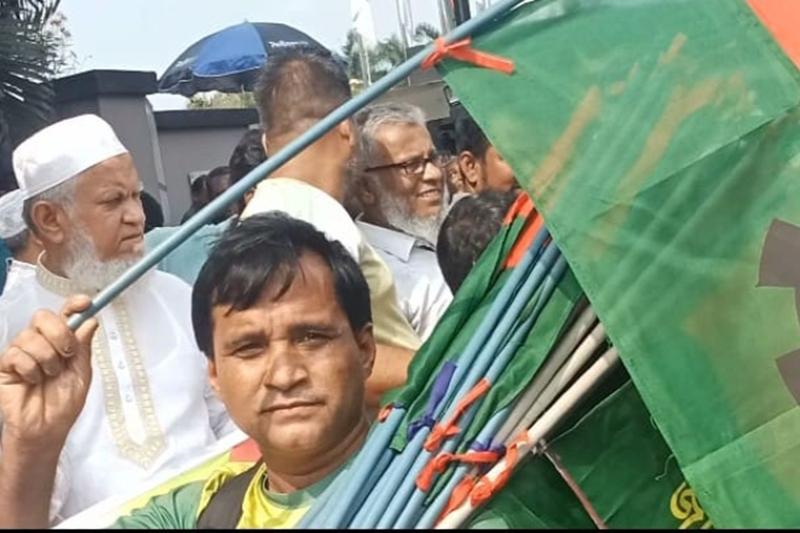
In a country where many wake up without a fixed plan for the day's earnings, survival is no less than a creative art form. Far from the desks and air-conditioned offices, countless people on the streets of Bangladesh have become masters of adaptation—artists of innovation, shaped not by degrees but by determination.
They don’t wear ties or carry CVs. What they carry instead is an instinct honed by struggle, and a resilience nurtured by necessity. One day, they’re under the shade of a mango tree, selling juicy fruits to passersby. As the monsoon clouds roll in, their stalls transform into vibrant displays of vegetables, raincoats, or umbrellas. With each festival, their wares change: during Eid or Puja, they offer prayer caps, fragrances, and colorful panjabis. On Pahela Boishakh, they become purveyors of tradition, selling folk masks, red-white sarees, and festive decor. Their economy is seasonal, spontaneous, and deeply tied to the rhythm of the nation.
But perhaps the most symbolic example of their entrepreneurial flair appeared recently on the streets near Dhaka airport. It wasn’t a holiday or harvest time. Instead, the occasion was political—a mass gathering of Bangladesh Nationalist Party (BNP) supporters awaiting the return of their party chairperson, Begum Khaleda Zia, from the United Kingdom.
Among the sea of slogans and waving hands, a man stood out—not because of his politics, but because of his product. He was selling BNP flags, dozens of them, to excited party workers eager to show their allegiance. The demand was instant, the transaction swift, and the profit—humble, yet hard-earned. His business model was simple: identify the moment, seize the need, and meet it with flair.
He wasn’t alone in his thinking. In fact, his story mirrors the spirit of thousands who have turned Bangladesh’s footpaths into floating markets of possibility. Whether it’s national flags on December 16th, roses on Valentine's Day, or cricket jerseys during a Tigers match, these unsung entrepreneurs have made a life out of reading the pulse of the people.
Their lives blur the line between survival and creativity. They don’t just sell goods—they sell relevance. With no formal training in marketing or business, they understand trends, plan logistics, and price for demand. Where others see chaos, they find opportunity.
This is not just about commerce. It’s about a mindset—one that refuses to sit idle, that finds value in spontaneity and strength in uncertainty. It is a silent revolution on the streets, where people are proving each day that innovation doesn’t always come from boardrooms or business schools. Sometimes, it comes from a man holding a flag, standing by a road, turning the crowd into a customer base.
And that flag, whether political or patriotic, becomes more than cloth. It becomes a symbol—of resilience, reinvention, and the quiet genius of the everyday Bangladeshi.
Please click the link to see video of the news:
https://www.facebook.com/61575311759440/videos/2130136464100640/?rdid=X1fZrOEjcs6tbrSY#



